- Share via
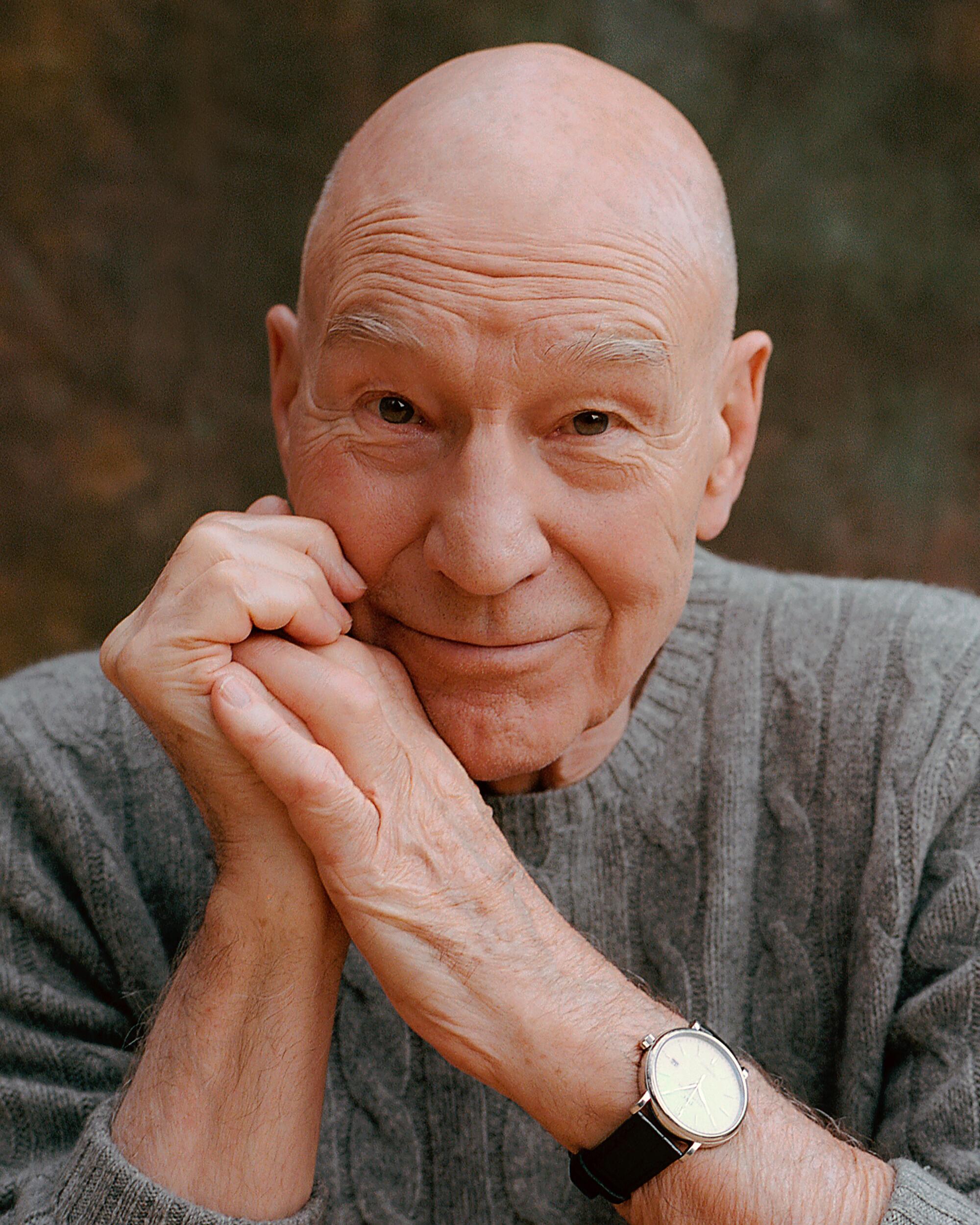
As the august space voyager Jean-Luc Picard, Patrick Stewart commanded the Starship Enterprise on and off across seven seasons of “Star Trek: The Next Generation,” four feature films, and, after a two-decade pause, three seasons of “Picard.” It’s a role he took only because he was assured by confidants that “The Next Generation,” which required a six-year contract, wouldn’t run a year, freeing him to return to England and the theater.
The final season of “Picard,” which concludes Thursday on Paramount+, brings down the curtain on the character and, in bringing back most of the original show’s cast, “The Next Generation” saga as well. I spoke with Stewart, 82, a genial, funny, casually dapper gent, at the home he shares with his wife, singer Sunny Ozell — an old Spanish-style house on a leafy Los Angeles street, purchased just before the pandemic. (“I never thought I’d live in a house that had archways everywhere — no doors!” He counted six from where we were sitting.) Stewart had watched the finale that morning, and he had thoughts and more.
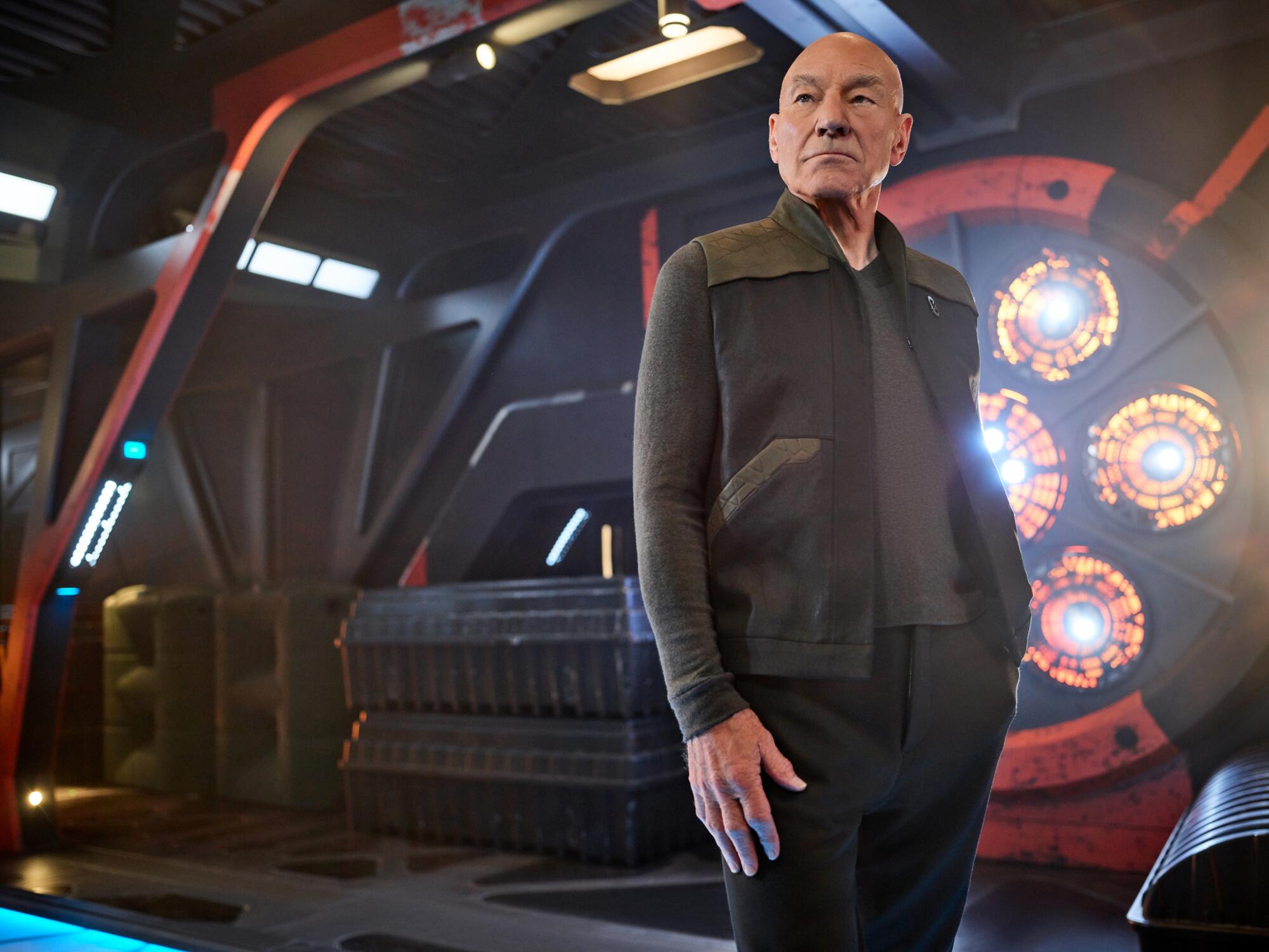
Did you fall in love with Shakespeare before you decided to become an actor?
No. Because “fall in love” doesn’t fit my experience. But something happened, and it happened the first time I held a copy of Shakespeare in my hand and read aloud. And that was because of an English teacher, Cecil Dormand; he had that wonderful ability of being intense and serious about the work and also entertaining and comical at times.
And one day he went around our classroom, dropping a little thin book onto [our desks] and said, “Right, ‘Merchant of Venice.’ This is William Shakespeare, and you’re reading so and so,” and finally, “Patrick, you’re reading Shylock. OK, Act 4, Scene 1 — you know, who you’re playing, start reading it.” So we all went [mimes students reading silently], and he said, “Not to yourselves, you idiots. This is life, it’s drama. It’s the real world. Aloud!” And I had a big speech — it’s the trial scene — I didn’t know what the hell I was saying. There were words I’d never encountered before. I didn’t understand it, but there was something that made my breathing deeper. I can only remember the physical sensation because I was 12 — it wasn’t comprehension, I just felt weight in myself, which I hadn’t felt before. And I was hooked.
Tell me about Murph Swander.
Murph Swander! His real name was Homer. Homer D. Swander. In one sense, he’s why this huge event happened in my career and life. Murph came knocking on my dressing room at the Royal Shakespeare Theatre, in Stratford-on-Avon. He was standing there with a bottle of malt whiskey in his hand, and he introduced himself and said, “I’m here with a group of young people from California and we’re coming to see your show tonight and we’d love you to come talk to us tomorrow.” I said, “I’m sorry, I don’t do that. My work is what I do onstage, not talking about it.” And he said, “Well, it would give the students a lot of pleasure if you came, and by the way, this is for you.” I couldn’t afford to drink single malt whiskey in those days, so I said, “All right. Ten o’clock tomorrow morning.” And I talked for the whole hour without taking a breath.
Jumping forward many years, he set up a sort of institution which was run by Murph and myself and another actor, may he rest in peace, called Tony Church, and we went to Santa Barbara [where Swander taught] and did a week of classes, and we’d go to UCLA and up to Santa Cruz — it was mostly the University of California circuit. I got to know some of the teachers very well. And one of them, professor David Rodes, a specialist in Shakespeare at UCLA, called me one day and said, “I’m giving a public lecture on campus, and if you wouldn’t mind reading some passages to illustrate it, I thought it would be great.” So I said, “Sure, of course.” And he said, “There’s $100 in it for you.” “Wow, yes, I’ll do that.”
So I did, and the next morning, I got a call from a man who told me he was my agent — I’d never met him, never talked to him before, but he was my agent in California — and he said, “I’ve got two questions for you. What the hell were you doing at UCLA last night and why would Gene Roddenberry want to see you this morning?” And I said, “Jean who? I don’t know her.” And he told me who Gene Roddenberry was.
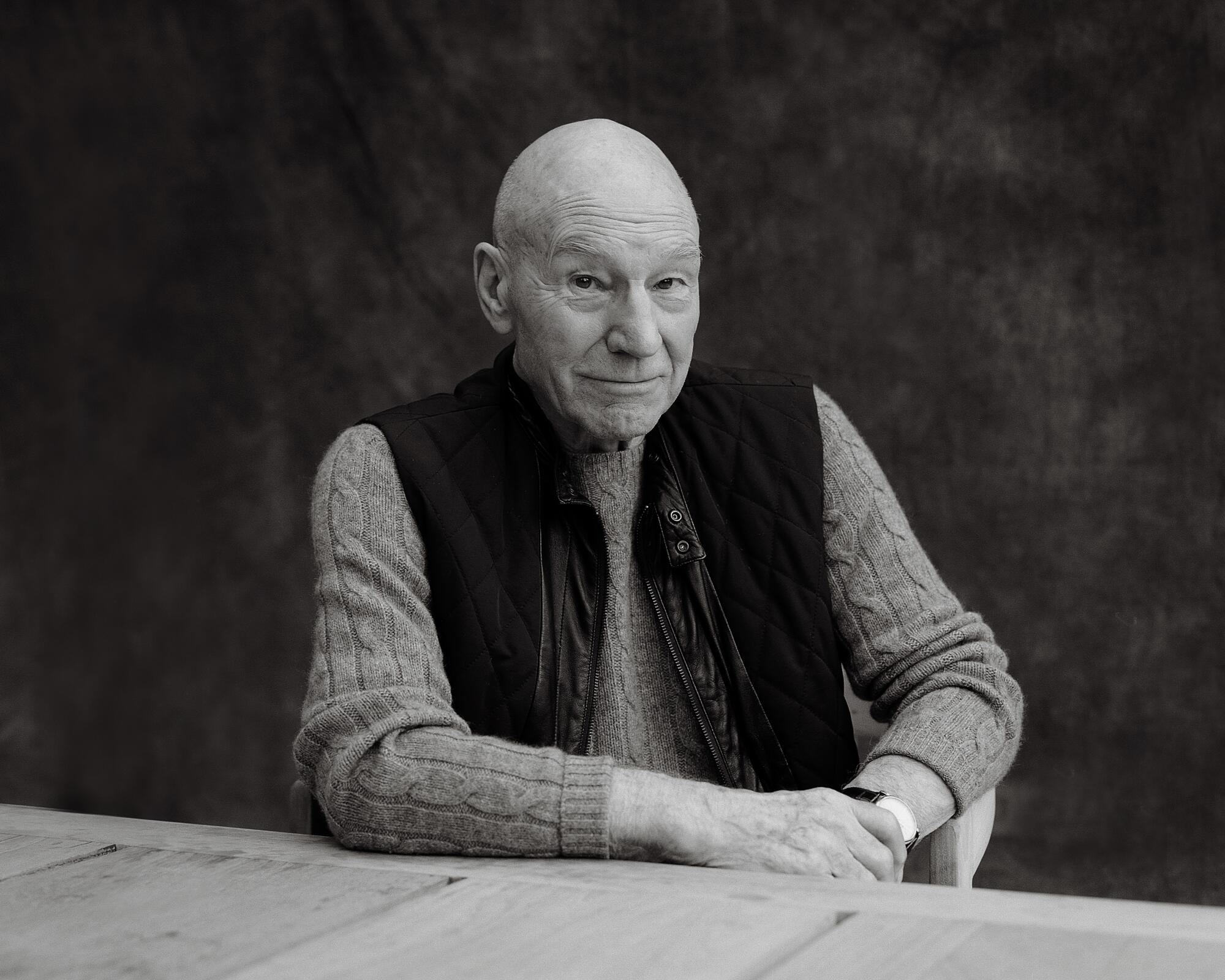
What were your first impressions of him?
Impressions ... not good. What I learned many months later was that one of the producers of this new series, which I’d never heard of —
You’d never heard of “Star Trek” at all?
I may have heard of it. When my children were young, I used to race home from the theater in Stratford after the matinee so I could help with their supper and read them a story before racing back to do an evening performance. And they’d watch this show, which I used to occasionally see when I came home on Saturday afternoon, these guys wearing different color T-shirts. That’s all I knew.
So I was told that it was a new “Star Trek” series, and I went to Gene Roddenberry’s house and was greeted at the door by this man, Robert Justman, who had been at the university the previous night and had called Gene Roddenberry and said, “I think we found an actor we’ve got to have in the show.” When I arrived, there were two other men there, besides Gene and Robert, and nobody asked me sit down. We talked for about 10 minutes standing up, and then Gene said, “Thanks for coming over,” and goodbye. And I was back on the street, and I thought, “Bloody hell, what the heck was that about?”
Hollywood.
Yes, Hollywood. So I called my agent and told him and he said, “Well, it’s funny you should say that because we’ve had another call and they want to see you again. “
Were there things that attracted you to the show, other than that it was work?
Nnnnnope. It was a style of work I never associated with, or even particularly watched when I was younger. Sci-fi didn’t have any interest for me. What was of interest was that it was on camera, it was in California, it was in Hollywood. My agent took me out to lunch and said, “I’ve got to walk you through the deal.” And when he told me some of the details I was totally disbelieving, what my salary per episode would be — incomprehensible. I couldn’t imagine that, nor indeed had I ever wanted it. I just loved the work I was doing, [playing] Shakespeare and other great dramatists.
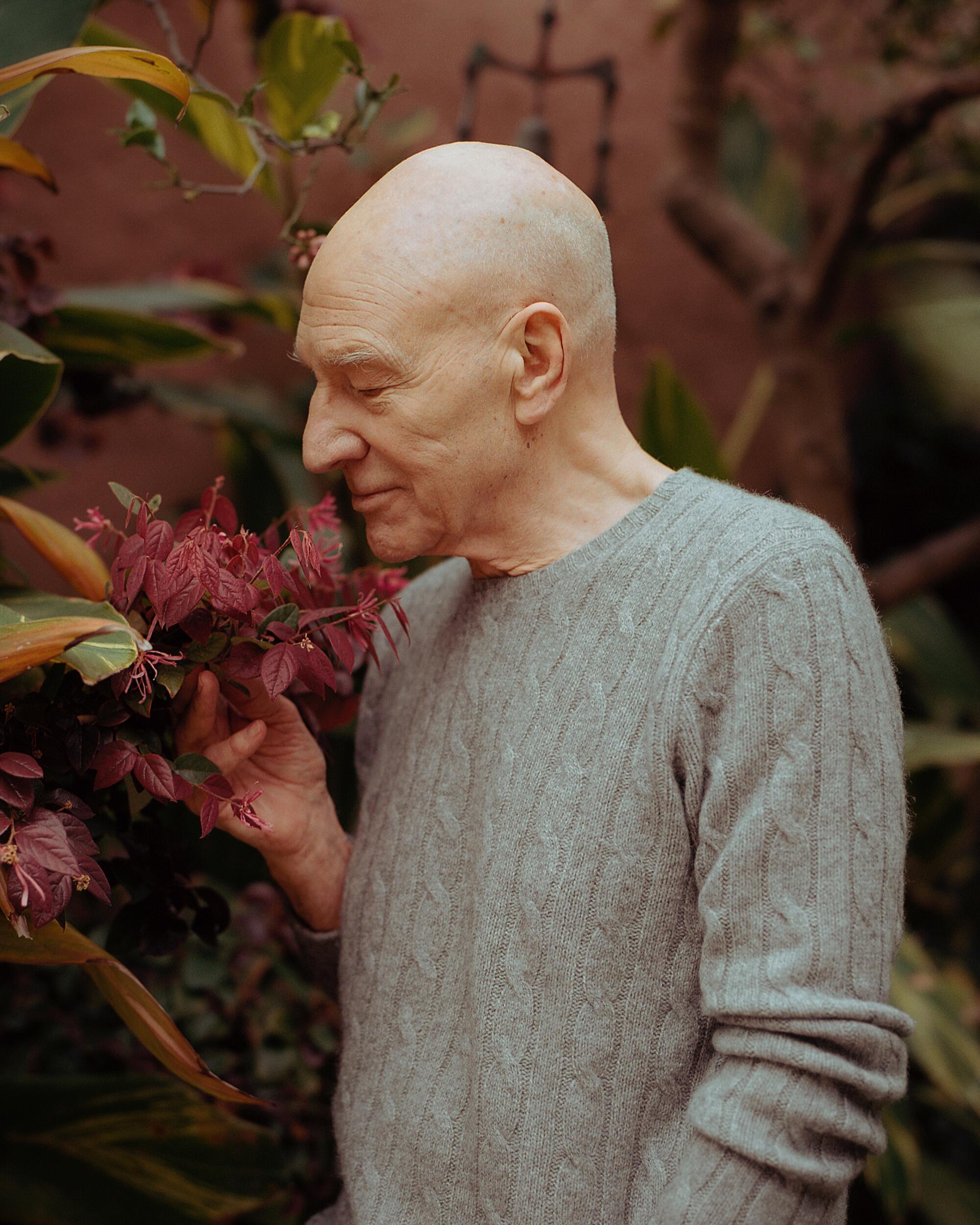
Was there a point where it became emotionally satisfying, more than just a job?
It took a long time. I worked very, very hard. I wanted to do good work because I thought this might be my passport to Hollywood. Well, seven years later, we wrapped the series and then we did four movies. It was the biggest thing that’s ever happened to me.
More for better than for worse.
Unquestionably.
How different was it playing Picard in “Picard”?
Oh, so different. I turned it down at first. And then I thought about the offer and decided I would do it, but I made two conditions. I didn’t want to wear a uniform, and it must not be a series that is fundamentally a sentimental reunion of “The Next Generation.” And they agreed to that. And I think the first “Next Generation” character who came on the show was Jonathan Frakes [as Will Riker] and then in Season 2, Marina Sirtis, who played Counselor Troi, was also in it. And to my great pleasure, I enjoyed having them back on the soundstage. We’ve all aged, all of us. I mean, Michael Dorn [who plays Worf], whose hair is white! And Jonathan with his grizzled gray beard. And me, of course, with my hollowed cheeks and exhausted appearance.
I think it was [producer] Alex Kurtzman who said, “Look, 20 years have passed, and in those 20 years, surely a lot has happened to you, Patrick. I know enough about your life to know there have been upheavals and changes. Surely, the same has happened to Jean-Luc Picard. What might those things be?” Well, I actually invented a whole story about those missing years; this may sound a little pretentious, but to create that past, which I assume will never, ever be known, was very intimate, and it influenced me when we began shooting “Picard.” Because I knew he had needs, longings, desires that were not being fulfilled. Disappointment that things had not gone the way he had hoped. Loneliness. Separation from these people he had loved and admired.
There are moments when I look at scenes in “Picard” and think, “Poor guy, [laughing] he looks terrible. He’s having such a bad time.” That wasn’t my intention, but that was what was being communicated. Anxiety, stress, irritation. I never yelled as Picard — I mean, I may have done — “The line must be drawn here!” [pronounced “hee-yah,” much-memed dialogue from the film “Star Trek: First Contact”], for which I was made fun of for decades. Actually, there was one like it in the last episode, and I thought, “At least, because there aren’t any more episodes, nobody will be making fun of me.” We made fun of one another a lot.
Full of ideas and emotions, the ever-expanding ‘Star Trek’ canon is still finding new ways to go where no TV show has gone before, 55 years on.
Were there any kinds of scenes you particularly enjoyed or didn’t enjoy playing?
I have to admit that when we got into Season 5, 6 and 7 [of “The Next Generation”], there were days I wished I could be doing something different — when you do 178 episodes there’s bound to be repetition. And there were some things about “Picard” I was uncomfortable with, when I thought it was nudging its way toward being a reunion show. But there were not many. And the way the show has been directed, and lit, and staged, it’s so impressive. So many times I feel I’m watching a movie and not a TV series.
I looked forward to those scenes where Picard was not just anxious but actually frightened. Or confused. Or not knowing what to do. I got great satisfaction out of playing those things, because they allowed me to investigate, and release, aspects of Jean-Luc that had really never appeared in “Next Generation.”
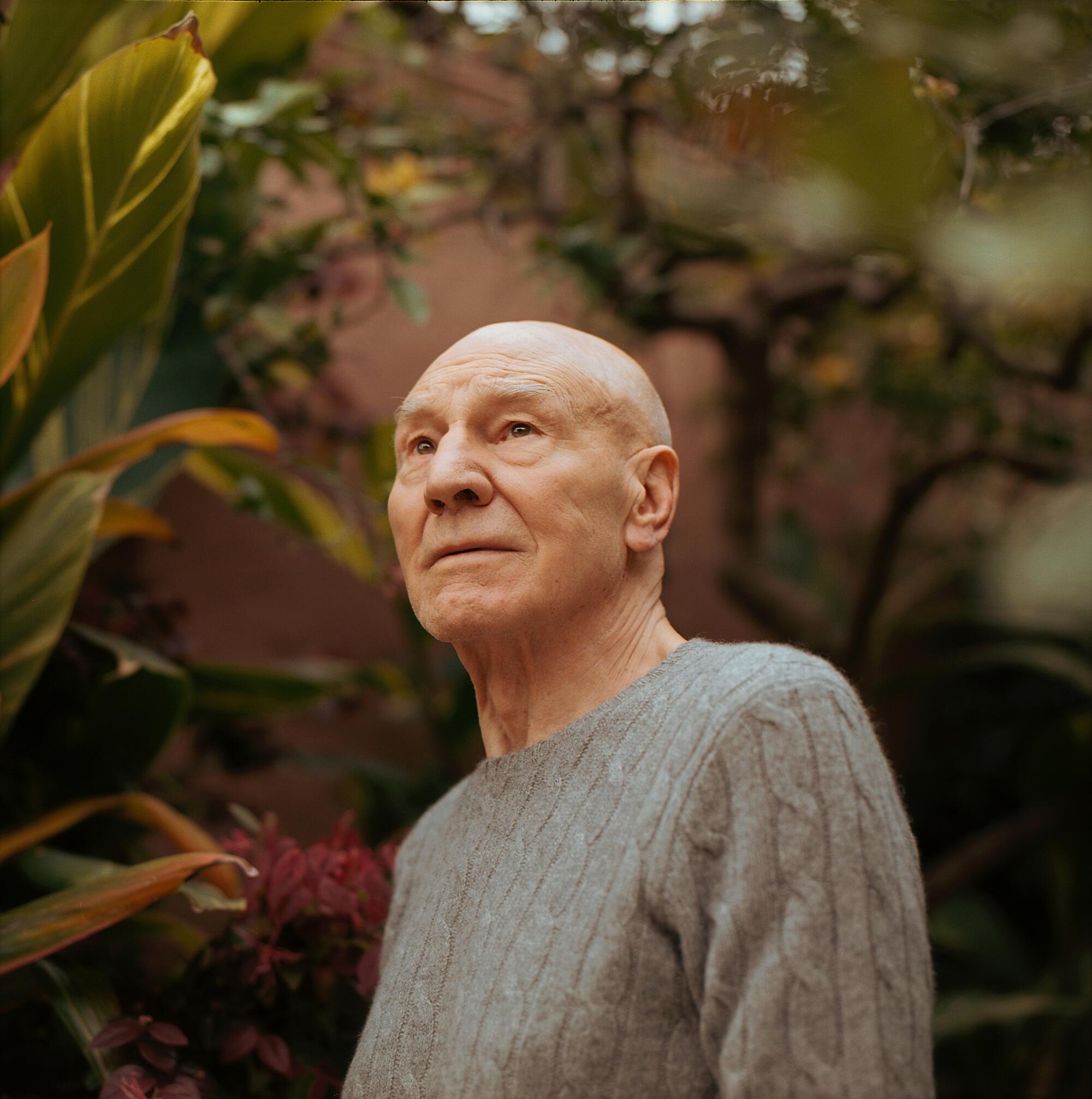
What do you think you brought to the character that wasn’t necessarily on the page?
Well, I very quickly came to understand that “Star Trek” was not naturalistic television. And there was a sort of formality about being the captain. I was the captain of a starship, and I sat in the center seat, and I had assistants on either side of me and people running the ship down there in front, and it very much reminded me of numerous Shakespearean situations I’d been in onstage. And I thought, “That’s how I should regard this role, as if it were ‘Henry IV,’” which is about brave men. And very quickly I got to know the cast.
Does that family of actors reflect on the family of characters?
I think so, yes. Your use of the word family is in fact very accurate. That is what we became. If you add Whoopi Goldberg, who joined us in the second season, and John de Lancie, who came in as Q. We became so close, and that’s grown over the years.
Last night, I watched Episode 9of Season 3, and this morning, I watched the final episode. There had been a little conflict about how it should end, and the script we held when we started shooting had an ending I was thrilled by — I thought it was absolutely perfect — I can’t tell you what it was — and then when we were shooting, a problem occurred. It was the last day and, oh, it was getting so late and we had so much to do. And I said, “We can pick that up anytime, it’s only me involved.” We never did it. So the ending I loved was never filmed. Instead, it was one I wasn’t happy about — until this morning.
Until you saw it.
The impact that the final episode had on me was unexpected and almost overwhelming. When it finally finished, I had to call out for my wife and go give her a hug because I felt so deeply connected with what I’d watched.
The way the series ends is wonderful. And I so badly thought it was totally wrong when we shot it. But the director and producers, in particular Terry Matalas, who directed it, his instinct was absolutely right, and my instinct was only protective, whereas he was going deeper into what made me feel this morning the whole effect it had on my life and career, this show. And I promise you, if you’d come to see me at half past 8 this morning, you would have found me in my wife’s arms, wiping away the tears.
It has the necessary elements: a bar, Shakespeare and poker.
But it has something else, doesn’t it? It has feelings.
‘Star Trek: Picard’
Where: Paramount+
When: Any time
Rating: TV-14 (may be unsuitable for children under age 14)
More to Read
The complete guide to home viewing
Get Screen Gab for everything about the TV shows and streaming movies everyone’s talking about.
You may occasionally receive promotional content from the Los Angeles Times.







